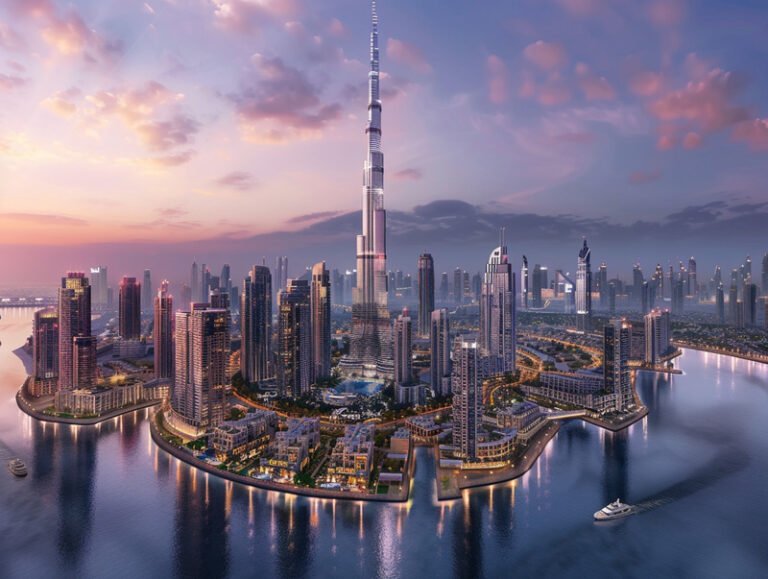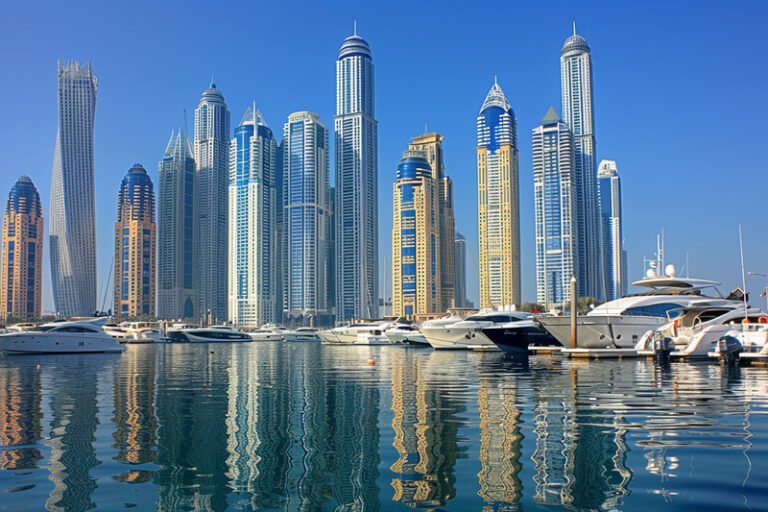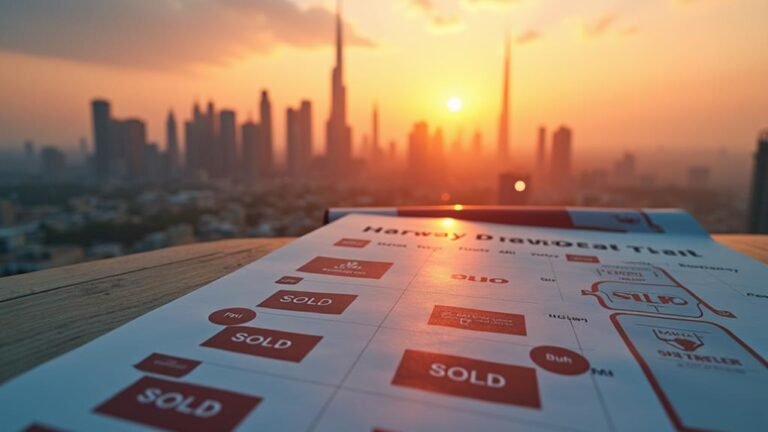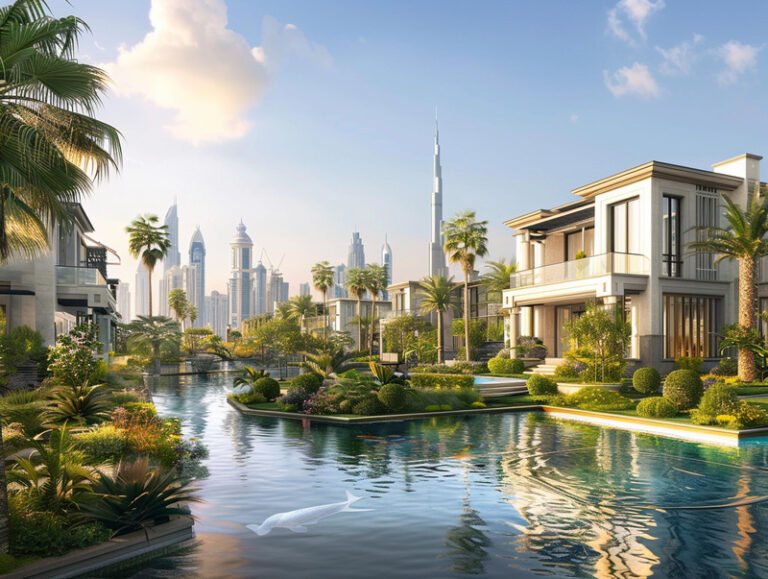Tips for Effectively Viewing Properties
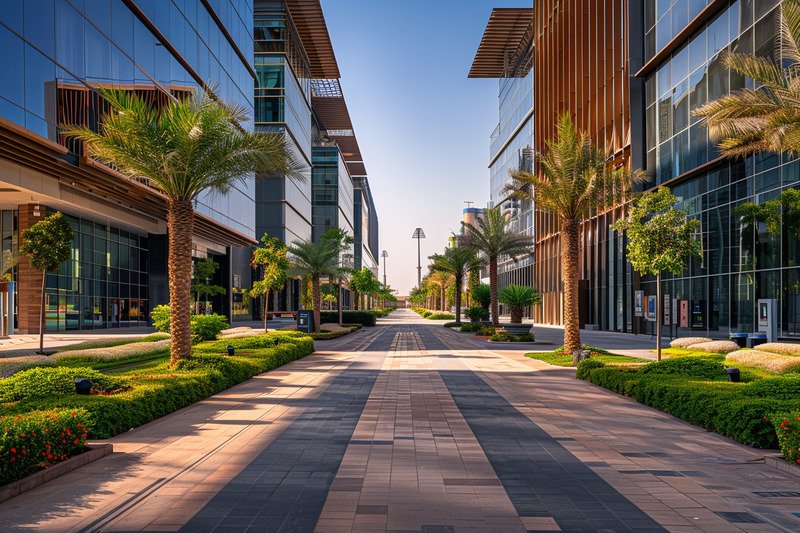
Dubai's real estate market is dynamic and diverse, offering a range of properties from luxurious penthouses to family-friendly villas. When searching for your ideal home or investment in this vibrant city, it's crucial to approach property viewings strategically. The glitz and glamour of Dubai's properties can be captivating, but it's essential to look beyond surface aesthetics.
Preparing thoroughly and knowing what to examine will help you make an informed decision in Dubai's competitive market. This guide will provide you with key tips to effectively view properties in Dubai, ensuring you consider all important factors before making a purchase.
Start by researching the area and nearby amenities. Dubai's neighborhoods vary greatly, from bustling downtown districts to tranquil suburban communities. Consider proximity to schools, shopping centers, and transportation hubs.
Pay attention to the property's orientation and natural light. Dubai's climate makes this particularly important. South-facing properties may receive more intense sunlight, while north-facing ones might offer more comfortable temperatures.
Let us help you find the perfect property. Contact us to get started.
Examine the quality of finishes and materials used. Dubai properties often boast high-end features, but it's important to verify their authenticity and durability. Look closely at flooring, countertops, and cabinetry.
Check for any signs of water damage or mold. Despite Dubai's arid climate, some properties may have issues due to poor construction or maintenance. Look for stains on walls, ceilings, or floors.
Inquire about the building's facilities and maintenance. Many Dubai properties offer extensive amenities. Verify their condition and ask about associated fees. This can significantly impact your living experience and expenses.
Key Takeaways
Dubai's real estate market is diverse and dynamic, offering a wide range of properties from luxurious beachfront villas to sleek city-center apartments. When viewing properties in this bustling metropolis, it's essential to approach each visit with a strategic mindset. The unique climate, architectural styles, and local regulations in Dubai require special considerations. Whether you're looking for a permanent residence, a vacation home, or an investment opportunity, following these tips will help you make informed decisions in Dubai's competitive property market.
Create a Dubai-specific checklist that includes evaluating the building's cooling systems, desert-proof construction materials, and compliance with local regulations. Pay special attention to the quality of insulation and window treatments to ensure energy efficiency in the hot climate.
Take detailed notes and high-quality photos, focusing on unique Dubai features like smart home technology, branded interiors, and views of iconic landmarks. Document the condition of luxury amenities such as private pools, gyms, and concierge services often found in Dubai properties.
Thoroughly inspect for any signs of wear due to the harsh desert environment. Check for sand infiltration, sun damage to exteriors, and the effectiveness of dust-proofing measures. In older properties, pay close attention to the condition of desalination systems and water pressure.
Ask about service charges, which can be significant in Dubai's luxury developments. Inquire about the building's Ejari registration status and any upcoming infrastructure projects in the area that could affect property value or quality of life.
Consider the property's proximity to key Dubai attractions, metro stations, and major highways. Evaluate the potential for short-term rentals if you're considering investment opportunities, particularly in areas popular with tourists.
Prepare a Comprehensive Checklist
When inspecting property in Dubai, a comprehensive checklist is essential. Create a detailed list to ensure you don't overlook crucial aspects during your visit.
Start with the property's basic features, including the number of bedrooms, bathrooms, and living areas. Include specific items to inspect, such as the condition of walls, floors, and ceilings. Don't forget to check for signs of water damage, mold, or pest infestations.
Your list should cover Dubai-specific elements like the building's cooling system and district cooling fees. Note the age and condition of major appliances, such as air conditioning units and water heaters. Include exterior elements like balconies, terraces, and parking spaces.
Remember to assess the property's proximity to key Dubai landmarks, metro stations, and amenities. Inquire about the building's facilities, such as swimming pools, gyms, and security features. Check for any ongoing or planned construction in the area that may affect views or property value.
Consider the property's orientation and natural light, especially important in Dubai's climate. Ask about service charges, maintenance fees, and any restrictions on short-term rentals. Include questions about the developer's reputation and the building's completion date.
Research the Neighborhood
When researching neighborhoods in Dubai, start by investigating safety records and crime statistics. Speak with local residents if possible. Check the proximity of essential amenities like grocery stores, hospitals, schools, and public transportation. These factors significantly impact daily life and property value.
Consider future development plans in the area. Look for upcoming construction projects or zoning changes that could affect the neighborhood. Research property values nearby to understand market trends and potential appreciation.
Visit the area at different times to assess traffic, noise levels, and overall atmosphere. Observe the maintenance of surrounding properties and public spaces, as this indicates community pride and investment.
Investigate local regulations and homeowners' association rules that might influence property use or renovations. Dubai's unique real estate landscape makes this particularly important.
Pay attention to the presence of popular Dubai attractions, such as beaches, malls, or iconic landmarks. These can affect both lifestyle and property value in the emirate.
Consider the area's connectivity to major business hubs and free zones, as this is crucial for many Dubai residents and investors.
Inspect Beyond Surface Appearances
Dubai's real estate market is known for its glitz and glamour, but savvy buyers know to look beyond the surface. When inspecting properties in this vibrant city, thorough examination is key. From luxury apartments in the Burj Khalifa to beachfront villas on Palm Jumeirah, each property requires careful scrutiny. This guide will help you navigate the unique aspects of Dubai's real estate landscape, ensuring you make an informed decision in this competitive market.
Start by checking for structural integrity. Look for cracks in walls or ceilings, uneven floors, or doors that don't close properly. These could indicate foundation issues, which are particularly concerning in Dubai's sandy terrain.
Examine the air conditioning system thoroughly. Given Dubai's extreme heat, a well-functioning AC is crucial. Ask about its age, maintenance history, and efficiency. Test it in all rooms to ensure consistent cooling.
Inspect for signs of water damage or mold, especially in bathrooms and kitchens. Dubai's humidity can exacerbate these issues. Pay attention to tile work and grouting, as poor installation can lead to water seepage.
Consider the property's orientation and natural light. In Dubai's sunny climate, the direction a property faces can significantly impact energy costs and comfort. South-facing properties may require additional cooling measures.
Ask Relevant Questions
When viewing properties in Dubai, asking the right questions is crucial. Prepare a list of inquiries to gather essential information. Focus on the property's age, recent renovations, and potential maintenance issues. Understanding the building's structural integrity and upcoming repair needs is vital.
Inquire about the neighborhood, including nearby amenities, schools, and transportation options. Ask about community rules and regulations, especially for villas or apartments in managed complexes. Request information on average monthly utility costs for electricity, water, and air conditioning.
Confirm any specific views or features you're interested in, ensuring they won't be obstructed by future developments. For investment properties, ask about rental yields and occupancy rates in the area.
Inquire about the seller's timeline and motivation for selling, as this information can be valuable during negotiations. By asking these pertinent questions, you'll gain a thorough understanding of the Dubai property market and make a more informed decision.
Take Notes and Photos
When house hunting in Dubai, thorough documentation is crucial. Bring a notebook or use your smartphone to record key details about each property. Take notes on room sizes, fixture conditions, and unique features. Don't rely solely on memory, as it's easy to forget specifics after viewing multiple properties.
Capture photos of each room, focusing on areas that might need attention. Document the property's exterior, neighborhood, and nearby amenities. Always ask for permission before taking photos, as some agents or landlords may have restrictions.
Create a standardized checklist for each property to ensure consistent evaluation. Include categories like location, size, condition, and potential issues. This approach will help you compare properties effectively.
Pay attention to Dubai-specific features, such as Emirati-style architecture, Islamic design elements, or smart home technologies common in luxury properties. Note the presence of facilities like prayer rooms or staff quarters, which are prevalent in many Dubai homes.
Consider the property's proximity to key Dubai landmarks, metro stations, or free zones. These factors can significantly impact your daily life and property value in the emirate.
Conclusion
When viewing properties in Dubai, preparation and attention to detail are crucial. Arm yourself with a comprehensive checklist tailored to Dubai's unique real estate market. Research neighborhoods thoroughly, considering factors like proximity to amenities, public transportation, and future development plans. Look beyond surface appearances, inspecting for quality construction and potential maintenance issues.
Ask relevant questions about property ownership, service charges, and any restrictions specific to Dubai. Document your findings with detailed notes and photos, paying attention to both the property's interior and exterior condition. Consider the property's orientation and natural light, which can significantly impact comfort in Dubai's climate.
Don't overlook the importance of parking facilities and building amenities, which can greatly affect property value in Dubai. If possible, visit the property at different times of day to assess noise levels and traffic patterns.
For off-plan properties, thoroughly review the developer's track record and project completion timeline. Understand the payment plan and any associated risks.
Consider seeking advice from a local real estate professional familiar with Dubai's market trends and regulations. Their expertise can provide valuable insights and help you navigate the city's unique property landscape.
Let us help you find the perfect property. Contact us to get started.


